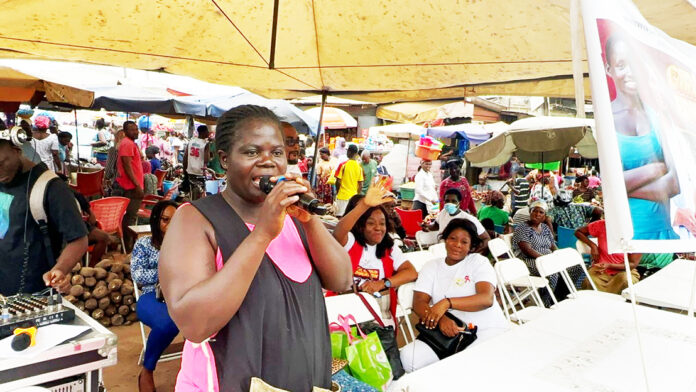The Directorate of the Ministry of Gender, Children and Social Protection at the Ashaiman Municipal Assembly (ASHMA) has visited the Central Business Market (CBM) to sensitise parents to prioritise their girl-child education for national development.

The selection of the venue for the public education, according to Juliet Selassie, the Focal Person for ASHMA in the Greater Accra Region, was spot-on as that is where people from all walks of life converge for commerce.
Dr James Kwegyir Aggrey’s prolific statement that: “if you educate a man, you educate an individual, but if you educate a woman, you educate a nation,” was the theme for the one-day programme, which saw several traders and motorists in attendance.
Juliet Selassie opened the forum by saying education is not only limited to the classroom environment. She said, “Education also means giving our girl-child some employable vocational skills to enable her to become self-reliant as she grows into adulthood.
“However, the need for formal education is crucial to enable our girl-child to read, write and understand the basic principles of the changing world we live in today”.
Miss Juliet added that quality and standard education for girls are significant for their personal development and future opportunities.
“So, you see, giving our girls quality and standard education will empower them, enable them to be current and understand the digital world and give them the urge to involve themselves in national discourses.
“Educated girls are more likely to participate in decision-making processes, have improved health outcomes and break the cycle of poverty,” she stressed.
Juliet Selassie said though progress has been made in girl-child education, there is still much work to be done to achieve universal access to quality education.
To realise this, she said parents must help governments and organisations to prioritise and invest in initiatives that empower girls through education.
“This requires collaborative efforts, policy reforms and a sustained commitment to breaking down barriers that hinder girls’ educational journeys,” she said.










